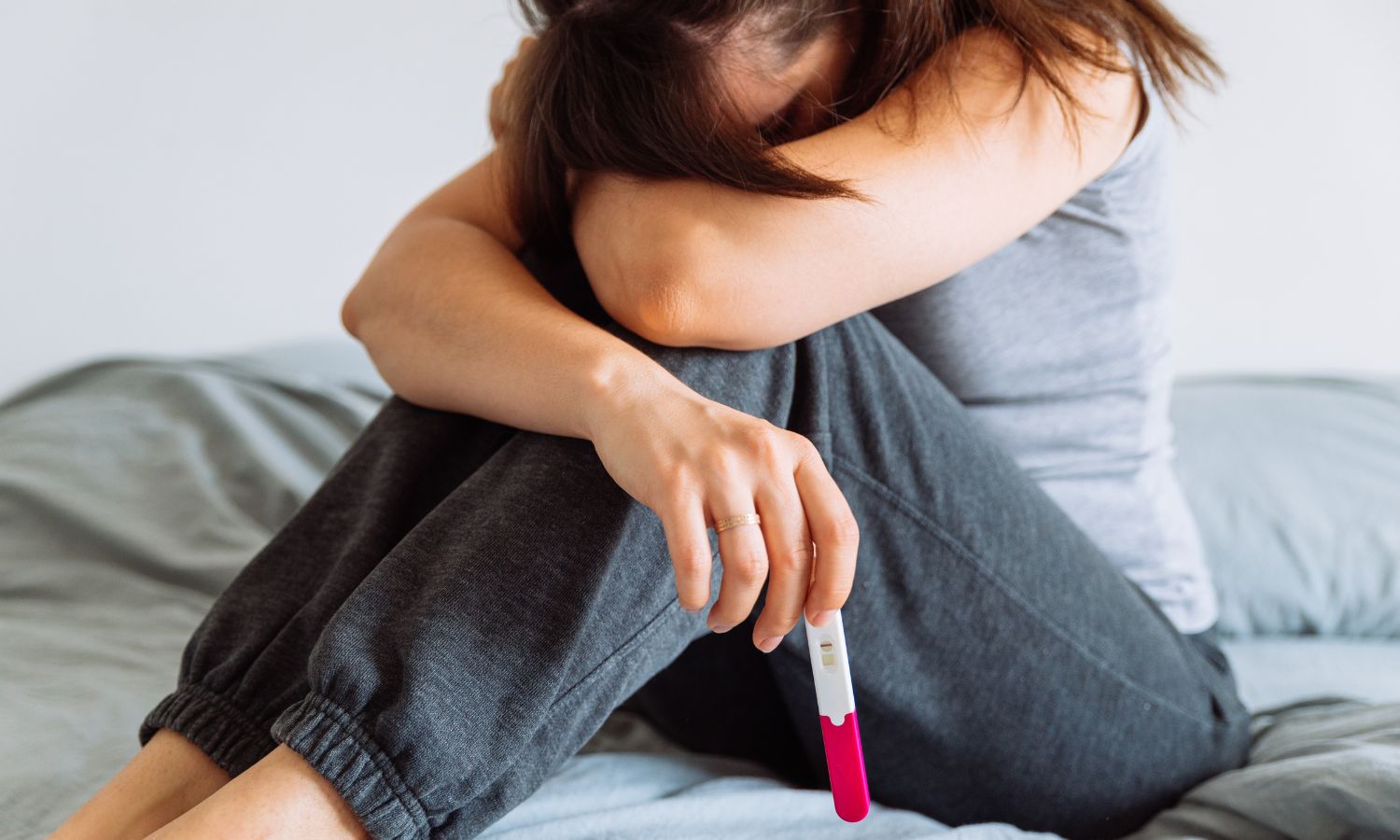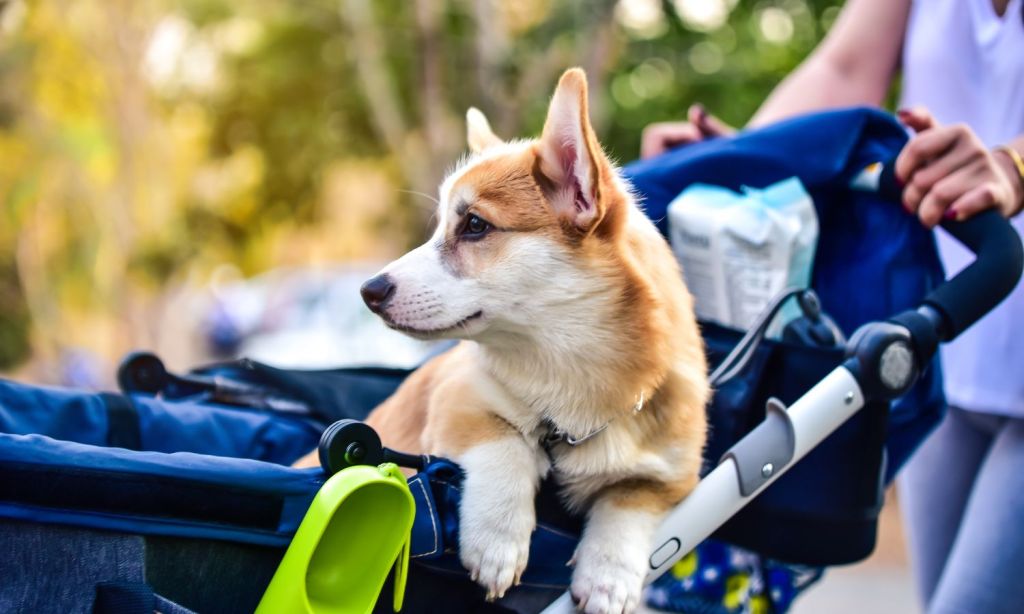In Tokyo, you can’t make it a meter without brushing shoulders with another individual, a stark contrast to the forest setting I find myself in now, lulled to calm by the harmonious melody of a stream and encompassed by a verdant tapestry so vivid and iridescent in the sun that words struggle to capture its sheer vibrancy. But for now, let’s call it green. Harurine Terrace in Karauizawa is a two-hour journey from the city and the kind of place you would expect city-dwellers to flock to for some much-needed space and fresh air. Yet, after wandering around this stylish shopping and dining destination, I realised it lacked family—at least in the traditional sense.
Japan is the only country in the world where pets outnumber children. The country has just 17 million children under 16 and almost 20 million cats and dogs, according to the Japan Pet Food Association.
But even without the data, it’s easy to see the profound adoration people here have for their pets. Fluffy white dogs replace babies in strollers, and tutu-sporting poodles prance around while their proud parents snap iPhone photos in front of colourful umbrellas. They eat at the table, wear designer clothing, and attend parties. They’re the new kids, says my local guide, Hitomi Hirasawa.
A mother herself to one daughter, Hirasawa informs us that young Japanese couples are choosing to either only have one child or abstain from reproducing altogether and focus on raising ‘fur babies’. Although be mindful that this isn’t a generalisation of the population, but rather a trend being observed. Japan is experiencing one of the lowest birth rates in the world, thanks to a combination of factors from cost of living to personal choice and an ageing population where the life expectancy is 100 or older.
Shocked by this revelation, I asked her, “How do the parents react to their children not wanting to have kids?” I think to myself, surely, a country so rooted in tradition wouldn’t take to this progressive way of living too lightly. Yet, I’m wrong. Hirasawa says it’s a don’t ask, don’t tell situation. “People respect other people’s choices here.”

This conversation mulled around in my thoughts several days after I left Karauizawa and the other prefectures I visited, where I met more Shiba Inus carted around in designer strollers than I did human children.
As I approach my thirties, the question of “When will you settle down and have kids?” seems to loom larger than inquiries about my career. This seemingly simple question carries profound implications for different individuals and circumstances, a topic that could fill the pages of a book. In fact, Australian journalist, Gina Rushton, has already penned a comprehensive work titled “The Most Important Job in the World,” delving into the paradox of choice and the mythology surrounding motherhood in our society. Rushton initiates a genuine dialogue about our desires, aspirations, and the role of motherhood in today’s world.
The important takeaway is simply not to ask, to respect the choice, and not to question it. I remember when I was in my early twenties, which wasn’t very long ago, people cared more about my career than my biological clock. I was asked, “How’s life in New York?”, “How’s the writing going?” Or most of the time, people would comment on my jet-setting life, uttering the words, “You’re so lucky” and “You have the best job in the world.” I agreed I had, correction (have), the best job in the world. I haven’t stopped travelling; I haven’t stopped exploring. Although, in the last five years, I’ve moved back to Australia, gotten engaged, planned a destination wedding, and bought my first home. It seems these life choices have unintentionally cornered me into the next phase of my life, motherhood.
The desire and ability to have children are deeply personal journeys, and it’s crucial to remember this when engaging in family discussions. After all, we don’t know the struggles others may face, whether it be infertility, mental health, or financial constraints. Sometimes, it’s simply a matter of savouring the freedom that a child-free life affords. I’m currently travelling alongside a fellow journalist in her late forties who has no desire to have children. She wholeheartedly devotes herself to her husband and her career, defying the outdated notion that a woman must bear children for her own fulfilment. Observing her, I see a woman who is happy—well-travelled, intelligent, an exceptional journalist—someone who knows who she is and what she wants. However, she also reveals that her family struggles to comprehend her choice, leading to its fair share of emotional turmoil.
Once again, I find myself questioning why we feel the need to diminish a woman’s worth based solely on her decision to fulfil or forgo her biological duties. I myself am more focused on my career and seeing the world than I am on creating a family right now. This doesn’t mean I’m ruling out having kids, but with the current cost of living crisis and fears of climate change weighing above our heads, the thought of procreating is a mere spot in the distance, surrounded by a dark cloud. Still, at 26, I’m hounded with the inevitable question by family and people I’ve met once or twice, which brings me to my knees in crippling anxiety. Thoughts swirl around in my head, creating doubt over my societal role. Am I a ‘bad female’ for essentially gambling with my fertility by waiting? Would my soon-to-be-husband forgive me if we couldn’t get pregnant because I surpassed my prime child-bearing years? These are all questions I’m sure others have.

In fact, many Australian companies are introducing fertility benefits to would-be mothers in the company, including Uber, McDonalds and Westpac. It comes after new research by Monash suggests 42% of Australian women are open to egg freezing. While in the US, this work perk is now offered by one in five major US firms, including Apple and Facebook, which introduced the benefit in 2014, Australia still has some catching up to do. With that said, the understanding that fertility is not always a matter of yes or no, rather, a not right now, is a step in the right direction. I, for one, am not opposed to freezing my eggs, especially if work is flipping the bill. It’s affording the people the power of choice to decide later if they want to start a family and, in a way, buy them time. As I mentioned earlier, fertility starts to reduce in your early 30s. I’m not going to generalise, but rather speak from my own situation. I am not, nor will I be, ready to have kids in three years. I have big plans, and none of them involve being a mother—just yet.
But if there’s one thing my recent journey through Japan has taught me, it’s that the decision to procreate or not is no one’s business but our own, and that should become the new cultural norm. Everyone’s life map takes a different route, and it’s high time we embrace and respect that diversity. Ultimately, if someone chooses to fill their life with six golden retrievers, then that’s their prerogative, and I wholeheartedly support it.
Related: Women, What You’ve Heard About Fertility and Age Is Wrong
Related: Amy Gerard: ‘How I Supported My Best Friend Who Struggled With Infertility for Six Years’
Read more stories from The Latch and subscribe to our email newsletter.







